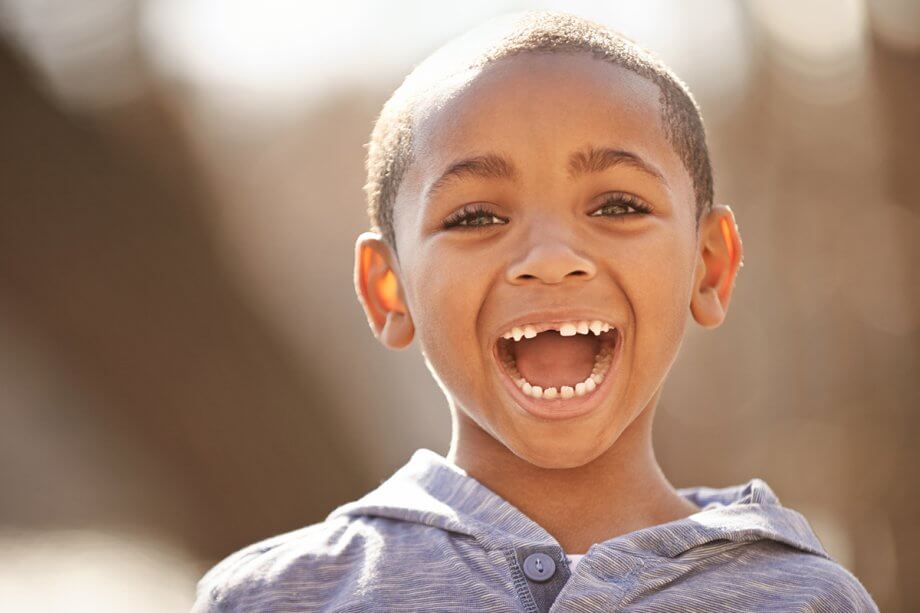Whether you’re a new or seasoned parent, you are probably aware that children lose their baby teeth. You most likely remember losing your own teeth as a child and putting them under your pillow in anticipation of the tooth fairy.
Now that you have a child of your own, you may be wondering when they will lose their first tooth. Learn when you can expect your child to start losing teeth and other important information about children’s dental health.
Average Age for the First Loose Tooth
The average range for a child’s first loose tooth is between the ages of 4 and 7. But most children will lose their first tooth around the age of 5 or 6, or sometime in Kindergarten or first grade.
Which Tooth Will Fall Out First?
In most cases the first loose tooth and the first tooth to fall out is one of the front teeth on the bottom row. This is because the bottom front teeth are usually the first to come in during infancy. The second front tooth on the bottom will likely be next, followed by the top front teeth. It is not unusual for the top front teeth to become loose before the bottom, just not as likely. There is no cause for concern if your child loses baby teeth slightly out of the usual order. Regular dental visits allow your dentist to monitor tooth shedding.
Is There Any Way to Predict the Age of the First Lost Tooth?
The biggest predictor of when your child may lose their first tooth is the age at when their first tooth came in. The earlier your child’s first tooth erupted during infancy, the earlier they tend to lose their first tooth. On average, the first baby tooth comes in somewhere between the ages of 6-12 months. But some infants get teeth earlier, around 3 or 4 months. If your child is on the earlier side of the age range, you can expect that they may have their first loose tooth as early as 4 years old.
Why Do Baby Teeth Fall Out?
Baby teeth fall out to make room for the permanent teeth. As your child grows they will have more room in their jaw for larger, permanent teeth. The baby teeth are important for early eating and speech development. They also serve as place holders for the permanent teeth that will eventually replace them.
Do Permanent Teeth Fall Out?
In general, permanent teeth should not fall out. Permanent teeth may be knocked out accidentally or fall out due to poor oral hygiene resulting in gum disease. If your child loses a permanent tooth, immediate treatment is required to save the tooth. The 2 year molars are the last baby teeth to fall out. The 6 year molars are permanent and should remain in place for life.
Schedule a Visit Today
Children should have regular dental checkups and teeth cleanings every 6 months beginning around their first birthday. As soon as your child has a visible tooth, dental care is essential. Mary Jo McGuire, DMD provides pediatric dental services for children of all ages in a safe and comfortable environment.
Call 908-735-6300 or contact us today to learn more and schedule an appointment.
Frequently Asked Questions About Losing Teeth
Should I save my child’s baby teeth?
There are potential health benefits to saving your child’s baby teeth. In the future the stem cells contained in the dental pulp can help with some illnesses. There are ways to preserve the dental pulp from baby teeth, but it must be stored in milk until the proper tooth banking steps are taken.
How soon will the permanent tooth come in after the loss of a baby tooth?
The permanent tooth is typically right behind the baby tooth. The baby tooth becomes loose because the permanent tooth pushes it out, gradually wearing away the roots until it is fully displaced. It could take anywhere from a few weeks to a few months for the permanent tooth to come in after the baby tooth is lost.
